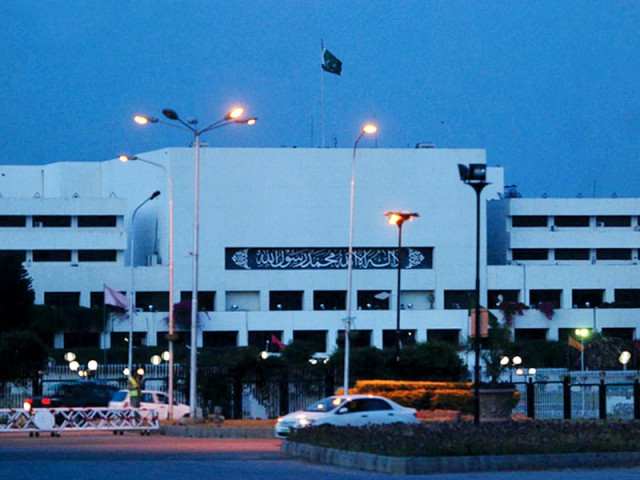Lights out
By starting with itself, the government is trying to send a message that no one will be spared from paying its dues.

The Parliament House plunged into darkness after IESCO disconnected its electricity connection for non-payment of dues. PHOTO: ONLINE
Non-payment is a key reason behind the phenomenon of circular debt, which needs no explaining here. Ironically, among these defaulters are the highest of state offices, both civilian and military, which provides a precedent for others to follow suit. By starting with itself, and cutting off installations such as the Parliament House and the Prime Minister’s Secretariat, the government is essentially trying to send a signal to the public — both the common man and elite: no one will be spared from paying its dues. Anti-default drives are inherently an exercise in public display and require a lot of noise and publicity for them to be successful. It is not without coincidence that one of the most brash parliamentarians of the ruling PML-N is spearheading this drive.
It is not only a matter of recovering dues, but ensuring that due recovery is streamlined in the future by instilling a sense of fear and accountability — or at least public shaming. In terms of the drastic move of cutting off key state installations, the idea is to not only that money be recovered, but be seen to be recovered from the highest offices of the land, and for the exercise to be extended further to other quarters, public and the military. Of course, the operational part of this strategy would involve these governmental installations and departments actually paying up after so much noise has been made. And there’s the rub.
Published in The Express Tribune, May 1st, 2014.
Like Opinion & Editorial on Facebook, follow @ETOpEd on Twitter to receive all updates on all our daily pieces.













COMMENTS
Comments are moderated and generally will be posted if they are on-topic and not abusive.
For more information, please see our Comments FAQ